- Learning time
- 20 minutes
- First play time
- 30 minutes
Penny Rails
Designed by: Travis D. Hill
Penny Rails is a short, two-player game of track-laying and share-grabbing.
Over the course of play, players take turns either laying track (placing a card on the table) or taking/trading shares (represented by coins) as they collaborate on building three lines west from New York to St Louis. You’ll need to supply your own coins (the American author proposes pennies, dimes and nickels, but UK readers can make do with pennies, five-pennies and twenty pence pieces – three of each).
The New York card is placed face-up on the table, with room to build ‘west’ from it. Your goal is to end the game as the richest player, by owning the most shares in the most prevalent line. Each card contains three types of rail-line and have their own shares, represented by the coins. Whenever a card is laid, it must connect to – without overlapping any track – at least one preceding card, and thus the cards will snake their way across the table until, finally, the St Louis card appears and ends the game.
The catch? Well, there’s more than one. First, often you can only connect one or two tracks of the three, and will intentionally or otherwise, break a line. Secondly, you can only connect track you actually own shares in. Thirdly, while you’re picking up shares you can be darn sure your opponent will be breaking your tracks and devaluing them!
On your turn you have three options. Lay track (described above) reserve track (taking a card, but holding off laying it) or taking/trading shares.
The shares have a modicum of complication so we’ll explain them here. Acquiring a share is simple – just pick up a coin showing heads (meaning a single share) or return a coin showing heads to take 2 identical shares (one coin, but showing tails) of a different train line. Or you can trade in any two shares for a single share. Each track has a limited amount of shares – pennies begin with 3 heads, nickels with 2 heads and 1 tail, and dimes with 1 heads and 2 tails. The amount of shares in each line never changes – coins never flip – and each player can have a maximum of five shares.
Mixed into the deck of track cards are three citiy cards, and these will boost the scores of connected tracks at the end of the game, where every card on connected track is worth a dollar to the majority shareholder. Or you can play the slightly advanced scoring rule, where rewards are split between all shareholders (with majorities obviously gaining greater rewards). The richest player wins.
The guru's verdict
-
Take That!
Take That!
Yes. It's not arbitrary, but both players should take time to see if they can place a card (or take a share) that impacts negatively on their opponent, as well as helping themselves.
-
Fidget Factor!
Fidget Factor!
Low. It's a short game, although considering how reactive play can be, players may need short bouts of thinking time.
-
Brain Burn!
Brain Burn!
Three lines, twelve shares, how hard could it be? Well - every track added to the expanding 'board' impacts on decisions. Although it can add a modicum more complexity, the game is best with the advanced scoring.
-
Again Again!
Again Again!
Penny Rails presentation is a little grey, and the game itself doesn't vary massively from play to play. But publisher Button Shy's remit isn't an expensive expansive box of delights, but simple-ish games you can carry in your pocket.

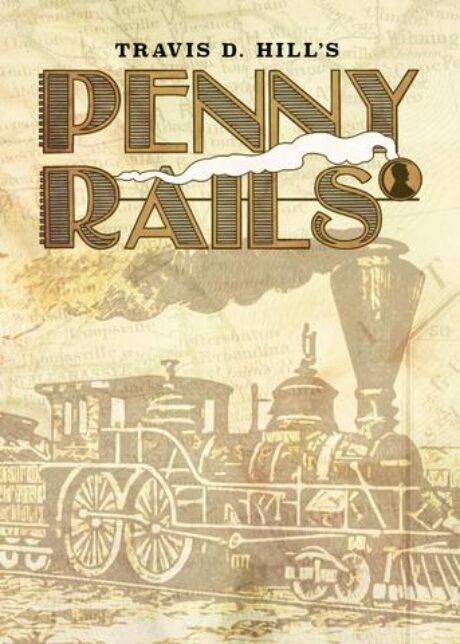



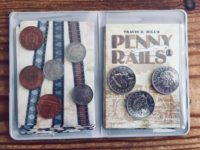


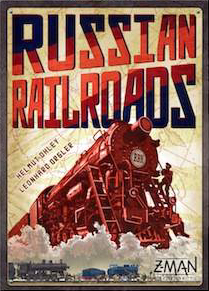

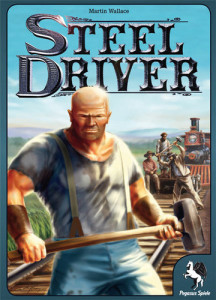
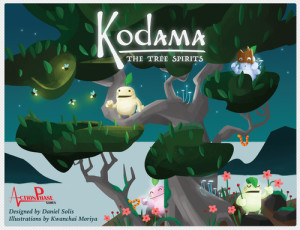
Sam says
There's something rather canny about Penny Rails in how you're confronted with a difficult choice on every turn: add track, and you leave the shares open to be grabbed by your opponent. Grab shares, and your opponent will lay track that's sure to undermine its value. And in turn your opponent is facing the same dilemma. It reminds me of the (nasty but fun) Northern Pacific, but in pocket form. What Northern Pacific has over Penny Rails however (as well as a board and more colourful presence) is the multi-player angle where temporary alliances are made and split. In comparison the two-player-only Penny Rails seems almost somber, but there's a pub-friendly portability, and a cleverness to its inscrutability too.